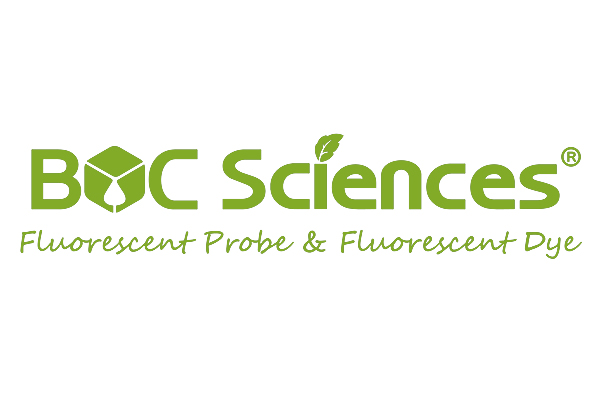
TAMRA-PEG4-Tetrazine
| Catalog Number | F07-0028 |
| Category | TAMRA Dyes |
| Molecular Formula | C45H50N8O9 |
| Molecular Weight | 846.9 |
* Please be kindly noted products are not for therapeutic use. We do not sell to patients.
Product Introduction
TAMRA-PEG4-Tetrazine is a tatrazine attached tetramethylrhodamine (TAMRA) dye. Rhodamine is a commonly used red fluorescent dye tracer in biology for staining cells, tissues, biomarkers or nanoparticles. It has peak fluorescence emission at 572-575 nm. Tetrazin demonstrates exceptionally fast cycloaddition kinetics (up to 30 000 M-1 s-1) with trans-cyclooctene (TCO) as the dienophile, the fastest kinetics ever reported for any bioorthogonal reaction.
Chemical Information
Product Specification
Application
Computed Properties
| Purity | 846.9 |
| IUPAC Name | 2-[3-(dimethylamino)-6-dimethylazaniumylidenexanthen-9-yl]-4-[2-[2-[2-[2-[3-oxo-3-[[4-(1,2,4,5-tetrazin-3-yl)phenyl]methylamino]propoxy]ethoxy]ethoxy]ethoxy]ethylcarbamoyl]benzoate;2-[3-(dimethylamino)-6-dimethylazaniumylidenexanthen-9-yl]-5-[2-[2-[2-[2-[3-oxo-3-[[4-(1,2,4,5-tetrazin-3-yl)phenyl]methylamino]propoxy]ethoxy]ethoxy]ethoxy]ethylcarbamoyl]benzoate |
| Canonical SMILES | CN(C)C1=CC2=C(C=C1)C(=C3C=CC(=[N+](C)C)C=C3O2)C4=C(C=C(C=C4)C(=O)NCCOCCOCCOCCOCCC(=O)NCC5=CC=C(C=C5)C6=NN=CN=N6)C(=O)[O-].CN(C)C1=CC2=C(C=C1)C(=C3C=CC(=[N+](C)C)C=C3O2)C4=C(C=CC(=C4)C(=O)NCCOCCOCCOCCOCCC(=O)NCC5=CC=C(C=C5)C6=NN=CN=N6)C(=O)[O-] |
| InChI | InChI=1S/2C45H50N8O9/c1-52(2)33-10-13-36-39(26-33)62-40-27-34(53(3)4)11-14-37(40)42(36)38-25-32(9-12-35(38)45(56)57)44(55)46-16-18-59-20-22-61-24-23-60-21-19-58-17-15-41(54)47-28-30-5-7-31(8-6-30)43-50-48-29-49-51-43;1-52(2)33-10-13-36-39(26-33)62-40-27-34(53(3)4)11-14-37(40)42(36)35-12-9-32(25-38(35)45(56)57)44(55)46-16-18-59-20-22-61-24-23-60-21-19-58-17-15-41(54)47-28-30-5-7-31(8-6-30)43-50-48-29-49-51-43/h2*5-14,25-27,29H,15-24,28H2,1-4H3,(H2-,46,47,54,55,56,57) |
| InChIKey | ALWNCKYHRQJXJO-UHFFFAOYSA-N |
| Storage | -20 °C |
TAMRA-PEG4-Tetrazine, a versatile molecule renowned for its utility in various bioorthogonal chemistry applications, boasts exceptional fluorescent properties. Here we delve into four key applications of TAMRA-PEG4-Tetrazine:
Fluorescent Labeling: Widely embraced for its prowess in biomolecule labeling, TAMRA-PEG4-Tetrazine finds extensive use in affixing fluorescent tags to proteins, nucleic acids, and small molecules. The fluorescence emitted by this compound enables the visual tracking of labeled entities within intricate biological systems. This attribute proves invaluable in advanced imaging modalities, such as fluorescence microscopy and flow cytometry.
Bioorthogonal Chemistry: Standing out in the realm of bioorthogonal reactions, TAMRA-PEG4-Tetrazine engages in high-specificity interactions with trans-cyclooctene (TCO) groups, deftly sidestepping interference with natural biological activities. This precision allows for targeted modifications of biomolecules within living organisms, a boon for in vivo studies and biochemical assays calling for minimal background noise.
Drug Delivery Systems: Enterprising researchers harness the potential of TAMRA-PEG4-Tetrazine in crafting tailored drug delivery systems. By conjugating the fluorescent tetrazine to therapeutic agents, scientists gain real-time insights into drug distribution and release dynamics. This real-time monitoring not only refines drug delivery efficacy but also mitigates off-target effects.
Protein-Protein Interaction Studies: In the intricate domain of protein interactions, TAMRA-PEG4-Tetrazine emerges as a crucial ally in labeling and tracking one of the interacting partners. This capability enables researchers to scrutinize the real-time dynamics of these interactions within live cells, offering profound insights into cellular signaling pathways and potential drug targets. The application of this compound in protein-protein interaction studies propels the frontiers of molecular biology and drug discovery.
| Hydrogen Bond Donor Count | 4 |
| Hydrogen Bond Acceptor Count | 28 |
| Rotatable Bond Count | 42 |
| Exact Mass | 1692.74015040 g/mol |
| Monoisotopic Mass | 1692.74015040 g/mol |
| Topological Polar Surface Area | 405Ų |
| Heavy Atom Count | 124 |
| Formal Charge | 0 |
| Complexity | 3110 |
| Isotope Atom Count | 0 |
| Defined Atom Stereocenter Count | 0 |
| Undefined Atom Stereocenter Count | 0 |
| Defined Bond Stereocenter Count | 0 |
| Undefined Bond Stereocenter Count | 0 |
| Covalently-Bonded Unit Count | 2 |
| Compound Is Canonicalized | Yes |
Recommended Services
Recommended Articles

- Hoechst Dyes: Definition, Structure, Mechanism and Applications
- Mastering the Spectrum: A Comprehensive Guide to Cy3 and Cy5 Dyes
- Fluorescent Probes: Definition, Structure, Types and Application
- Fluorescent Dyes: Definition, Mechanism, Types and Application
- Coumarin Dyes: Definition, Structure, Benefits, Synthesis and Uses
- Unlocking the Power of Fluorescence Imaging: A Comprehensive Guide
- Cell Imaging: Definitions, Systems, Protocols, Dyes, and Applications
- Lipid Staining: Definition, Principles, Methods, Dyes, and Uses
- Flow Cytometry: Definition, Principles, Protocols, Dyes, and Uses
- Nucleic Acid Staining: Definition, Principles, Dyes, Procedures, and Uses
Recommended Products
Online Inquiry

-cpg-1000.gif)








